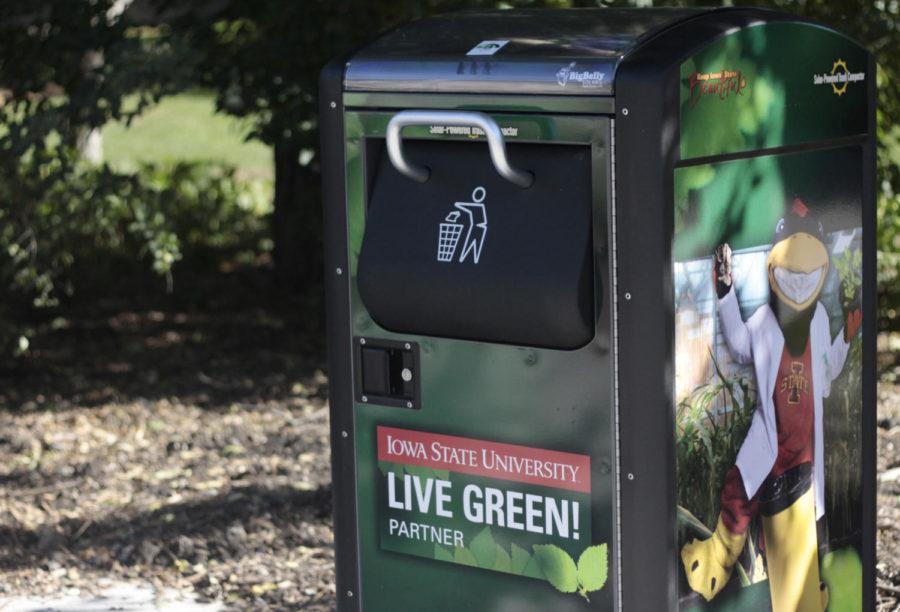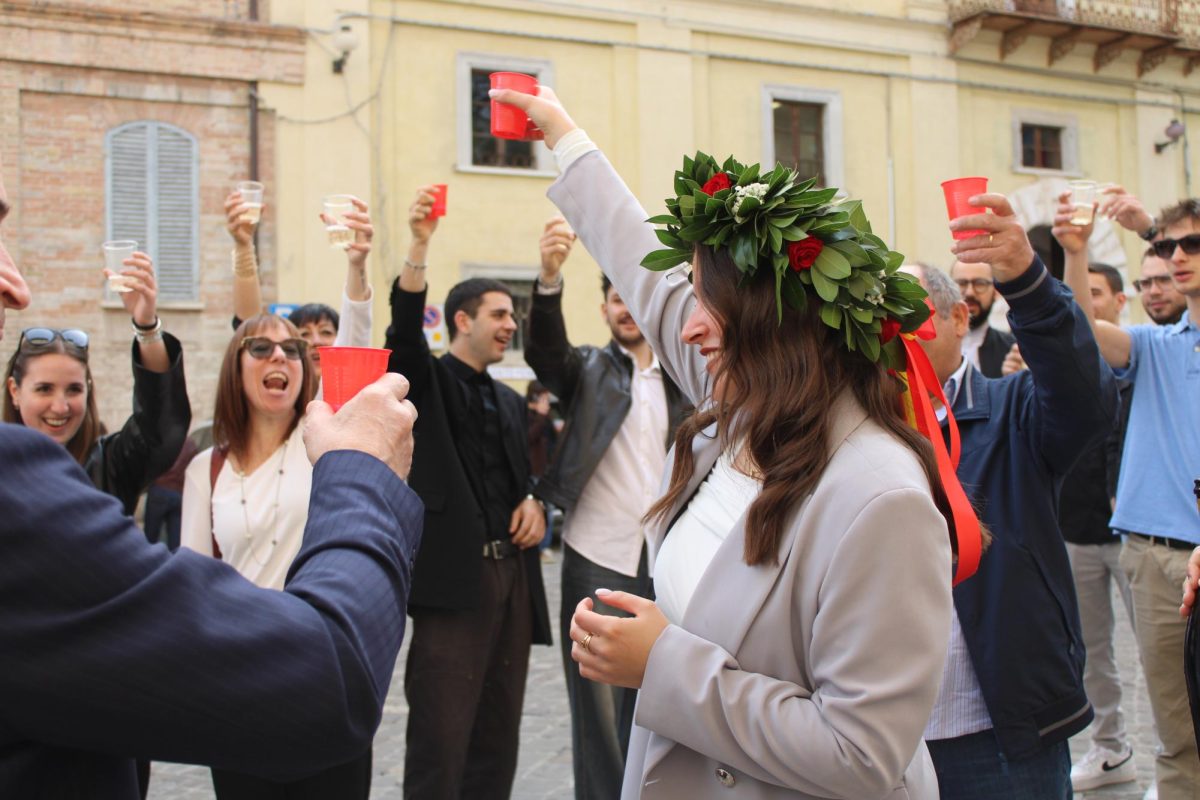ISU receives gold rating for sustainable recognition
October 23, 2013
Iowa State received one of the highest recognition awards from the Association for the Advancement for Sustainability in Higher Education this semester.
Iowa State earned the STARS gold rating for its achievements completed in the Sustainability Tracking, Assessment and Rating System reporting process.
The rating is an international certification for colleges and universities related to their sustainability activities and commitments according to Merry Rankin, director of sustainability.
Iowa State has done a number of things throughout the year in the area of sustainability to earn this recognition.
“For me, I think it’s really exciting [receiving the recognition] because people on campus: students, faculty and staff have worked very hard at a number of different ways related to supporting sustainability,” Rankin said.
Solar trash compactors around campus are one of the sustainable green initiative ways Iowa State pursues a more green campus. The buildings around campus are also designed, constructed and used with more green principles Rankin said.
Two major sustainable efforts that were acknowledged by the Association for the Advancement for Sustainability in Higher Education was the recycling of vinyl banners and marching band uniforms. The banners had been worn out by wind, sun and moisture and were converted into tote bags in 2011 and sold by the University Book Store and on the ISU Alumni Association’s website.
The ISU marching band recently purchased new uniforms and needed a way to get rid of the old uniforms. Due to trademark restrictions, the uniforms could not be donated. The university decided to recycle 500 uniforms and turned them into 1000 unique band-themed products [tote bags, laptop bags and iPod cases] that were sold by the music department in 2012.
In total, approximately 2,800 pounds of material was diverted from the waste stream through these efforts according to the Association for the Advancement for Sustainability in Higher Education website.
Peter Englin, director of the Department of Residence, stated that the gold status recognition is wonderful. Englin served on the steering committee for the application process.
The residence halls use recycling programs in order to help with the green initiative. Reduction on water use was an effort by the department. New shower heads played a role in helping decrease water use.
Water usage according to Englin was reduced by a third after making these changes.
“We are up to 40 big bellies [garbage cans] on campus at $5,000 a piece to have them around and they are solar power, reduce the number of pick ups and keep the trash down,” Englin said.
The addition of refill drinking fountain stations is another sustainable initiative enacted by the residence halls.
Another green sustainable option for students are the numerous courses provided for students to take and gain a better understanding of the rapidly growing sustainability field in various majors. Many courses have either a sustainability focus or relationship to another course topic.
Opportunities outside the classroom for students involve many student organizations supporting sustainability, service-learning opportunities, alternative breaks, out of the classroom educational experiences and volunteering opportunities for students and staff to take part in.
The Ames community is highly encouraged to get involved in any opportunities as well.
There are three main areas that the Association for the Advancement for Sustainability in Higher Education examines to determine the status of the recognition given to the college or university. The areas are education and research, operations and planning, along with engagement and administration efforts related to sustainability.
Education and research are looked at to see how courses and university research are connected to sustainability.
Operations are examined by how the university operates in sustainable ways. Many of those ways include water, energy, grounds and building operations.
The planning, engagement and administration is determined individually in each area. Engagement is looked at by the volunteer opportunities, specifically by the students in the community.
The planning area has to do with the commitment to sustainability through a strategic campus plan and sustainable initiative. The administration area examines aspects such as the hiring practices, providence of childcare and having a wellness program.
A college or university can receive the STARS award on four different levels. They are bronze, silver, gold and platinum. The area of certification depends on the score given to the college or university based off their application information.
The gold recognition is the first for Iowa State, and also the first time the university has taken part in the application process. The application is a self-reporting framework application.
The certification that Iowa State received is good for three years.
The application is a long and involved process according to Rankin that takes numerous members of the faculty to comprise all the information needed to be submitted.
There is a sustainability working group on campus that was entirely committed to the application process.
The application process for Iowa State took about three years to complete. The university examined the application for over a year and decided in the second year to commit to finish and submit the application.
“Every piece of campus has a piece of the certification,” Rankin said. “There is not a corner of campus that has not made this recognition possible.”

















